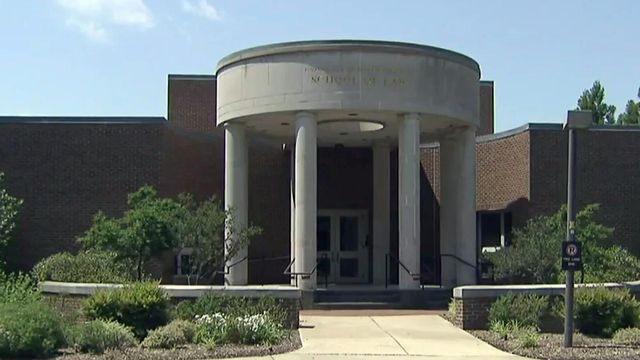NAACP, others decry proposal to close UNC's pro bono legal center
Supporters of the UNC Center for Civil Rights are rallying to spare the pro bono legal center at the University of North Carolina School of Law from a proposal that would effectively shut it down.
Posted — UpdatedThe UNC Board of Governors is considering a proposal that would prevent the center, which helps people who could not otherwise afford legal assistance, from participating in any litigation or providing legal counsel. The Board of Governors will hold a public forum at 11 a.m. Thursday at the the UNC Center for School Leadership Development, next to the Friday Center, to gather input on the idea, which wouldn't be voted on before July.
Backers of the proposal say law students have no business taking on cases and should instead focus on their education, but those who work at the Center for Civil Rights say it provides hands-on learning in addition to offering a public service.
"The center has a threefold mission that mirrors the university’s threefold mission" of education, research and service, managing attorney Mark Dorosin said.
"(Students) conduct discovery, they interview witnesses, they draft briefs and memorandums, they prepare us for oral arguments," senior staff attorney Elizabeth Haddix said. "The work that they do is work that we would otherwise be doing."
The center, which receives no state funding, primarily handles discrimination cases in education, employment, housing, access to public services and environmental justice.
Dorosin and Haddix said preventing the center from providing legal services sends a message to the low-income and minority communities that often turn to the center for help that they don't have the right to be heard.
"They have been alienated from the legal system by deliberate discrimination and indifference," Dorosin said. "The center’s unique strength is the ability to engage and support those communities. Without it, I don’t know that those communities will have a voice."
"It’s all too clear to us that the motivation for it is ideological. It’s an attack on the work that the center does: We represent marginalized communities," Haddix said.
Rev. William Barber, state president of the NAACP, accused state lawmakers of pushing the proposal on the Board of Governors because the Center for Civil Rights has been involved in some lawsuits involving state legislation.
"We understand that this attack is not because UNC is not doing its work. It is because you are doing your work," Barber said at a Wednesday afternoon rally. "Nobody has to fear a center for civil rights except somebody that’s trying to violate civil rights."
The center hasn't taken any new cases since March while UNC-Chapel Hill officials assess how the proposal would affect the law schools in its core mission. That report will play a role in the final decision by the Board of Governors.
Haddix said some incoming law students are rethinking their plans to attend UNC if the center is forced to close.
"The center can’t exist without being able to litigate as part of its advocacy," she said.
Beyond students and clients, Dorosin said, the proposal sends a bad message to the general public.
"I think everybody in this state should be concerned about and committed to making the state live up to its constitutional promises of equal justice under the law. The loss of the center would be a real devastating blow to our ability to fulfill that promise," he said.
The North Carolina Central University School of Law has the only other pro bono legal center in the UNC system, but officials said it likely wouldn't be affected by the proposal, if approved, because it operates as a "clinic," providing credits toward graduation to students.
• Credits
Copyright 2024 by Capitol Broadcasting Company. All rights reserved. This material may not be published, broadcast, rewritten or redistributed.






